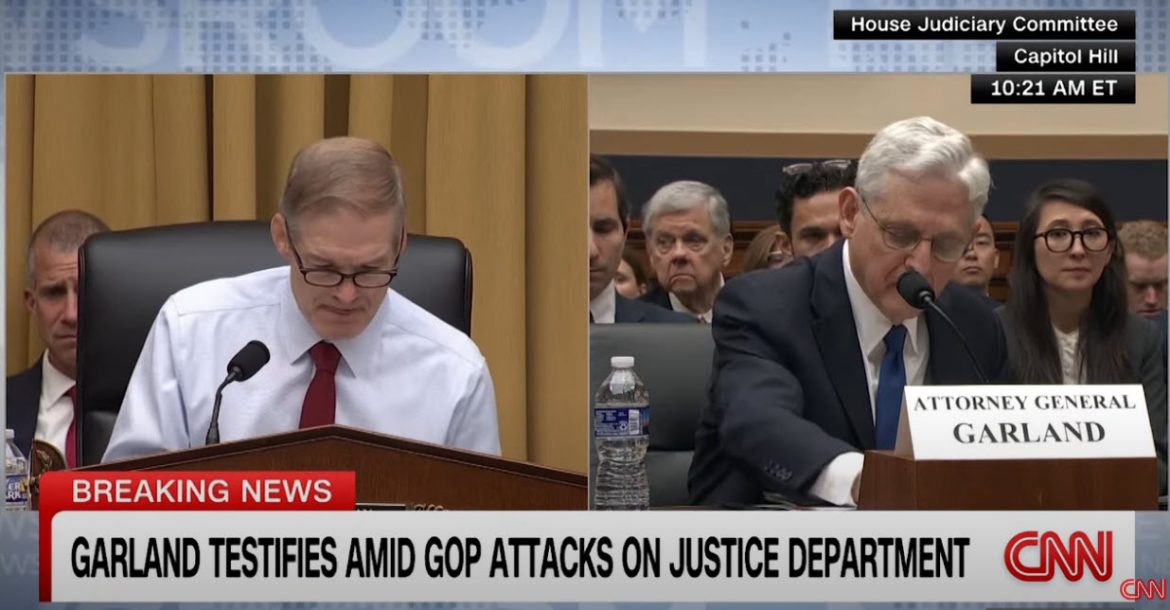House Republicans reveal a strategic plan aimed at addressing what they claim is the weaponization of the Department of Justice (DOJ) against former President Donald Trump. Speaker Mike Johnson outlines a “three-pronged” approach, leveraging the appropriations process, legislation, and Congress’s oversight authority to counteract alleged biases within the DOJ.
The announcement comes less than a week after a jury found Trump guilty on felony counts of falsifying business records, and as Trump faces federal indictments in two separate cases. Attorney General Merrick Garland faces intense scrutiny and pushback from GOP lawmakers during a congressional hearing today, as he defends the DOJ’s actions and integrity.
Attorney General Merrick Garland forcefully denies allegations of DOJ weaponization during his testimony before the House Judiciary Committee. He describes the claims as “baseless and extremely dangerous falsehoods,” emphasizing that the DOJ operates independently and without political bias. Garland refutes accusations that the DOJ influenced Trump’s conviction in Manhattan, labeling such assertions as conspiracy theories.
GOP lawmakers, led by Congressman Jim Jordan and Congressman Matt Gaetz, press Garland to release audio tapes of President Biden’s interview with the DOJ. The interview pertains to Biden’s handling of classified material. Special Counsel Robert Hur, who investigated the matter, declined to prosecute Biden, citing potential jury sympathy due to Biden’s age and perceived memory issues. This decision has ignited a political firestorm, with Republicans arguing it exemplifies a double standard in the DOJ’s treatment of Trump versus Biden.
Republicans are considering holding Garland in contempt of Congress for his refusal to turn over the Biden tapes. Garland defends his decision, citing concerns over the potential manipulation of the recordings to create AI-generated fakes. Despite significant GOP pressure, Garland maintains that he has cooperated extensively with congressional requests and insists that the DOJ has acted appropriately and within the bounds of the law.
House Republicans’ plan to address the alleged weaponization of the DOJ involves scrutinizing the agency’s budget, proposing new legislation to limit its powers, and enhancing congressional oversight. This comprehensive strategy aims to ensure accountability and prevent perceived abuses of power within the Justice Department.
As the debate continues, the political landscape remains deeply polarized. Democrats accuse Republicans of attempting to undermine the DOJ to protect Trump, while Republicans assert that their actions are necessary to restore impartiality and fairness in the justice system.



